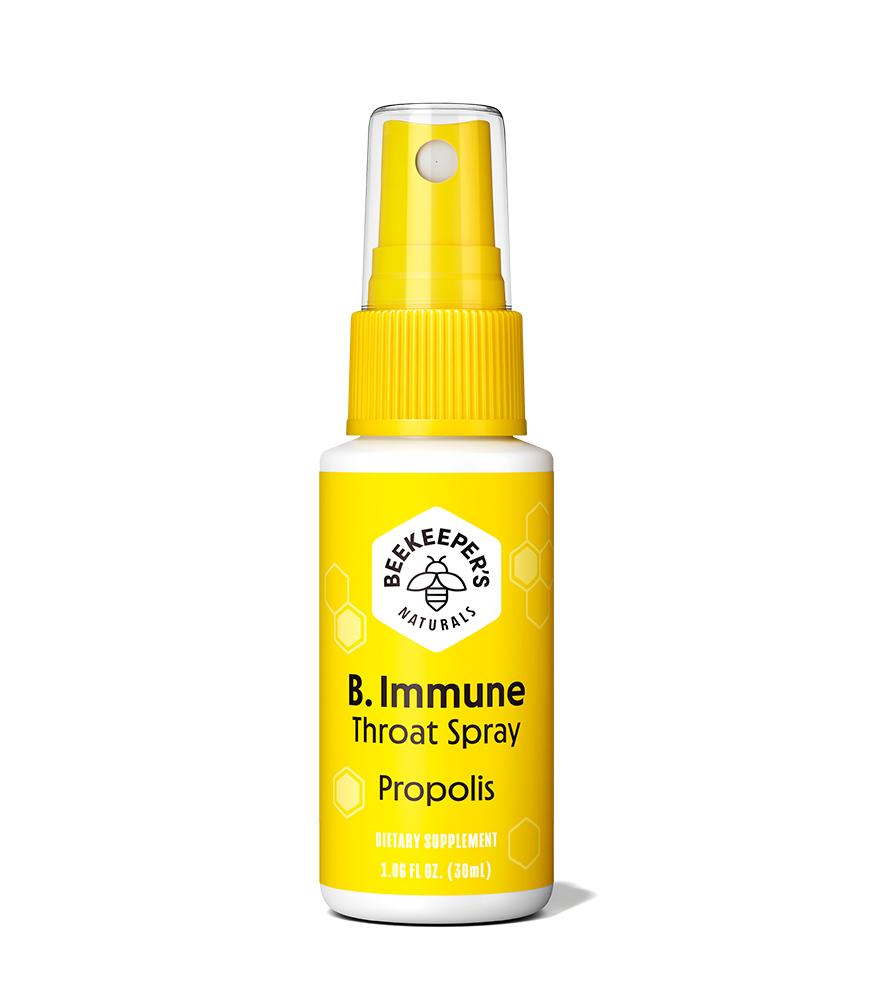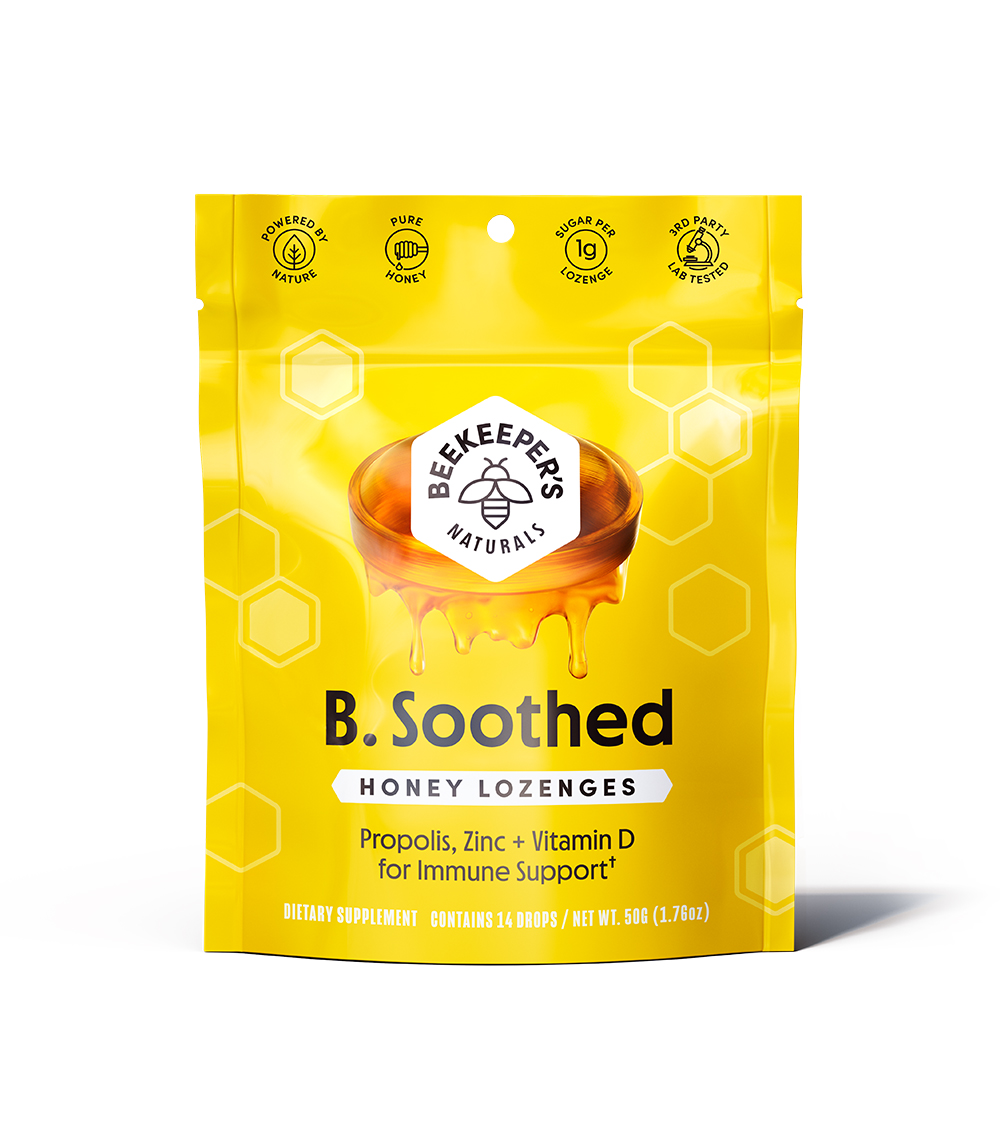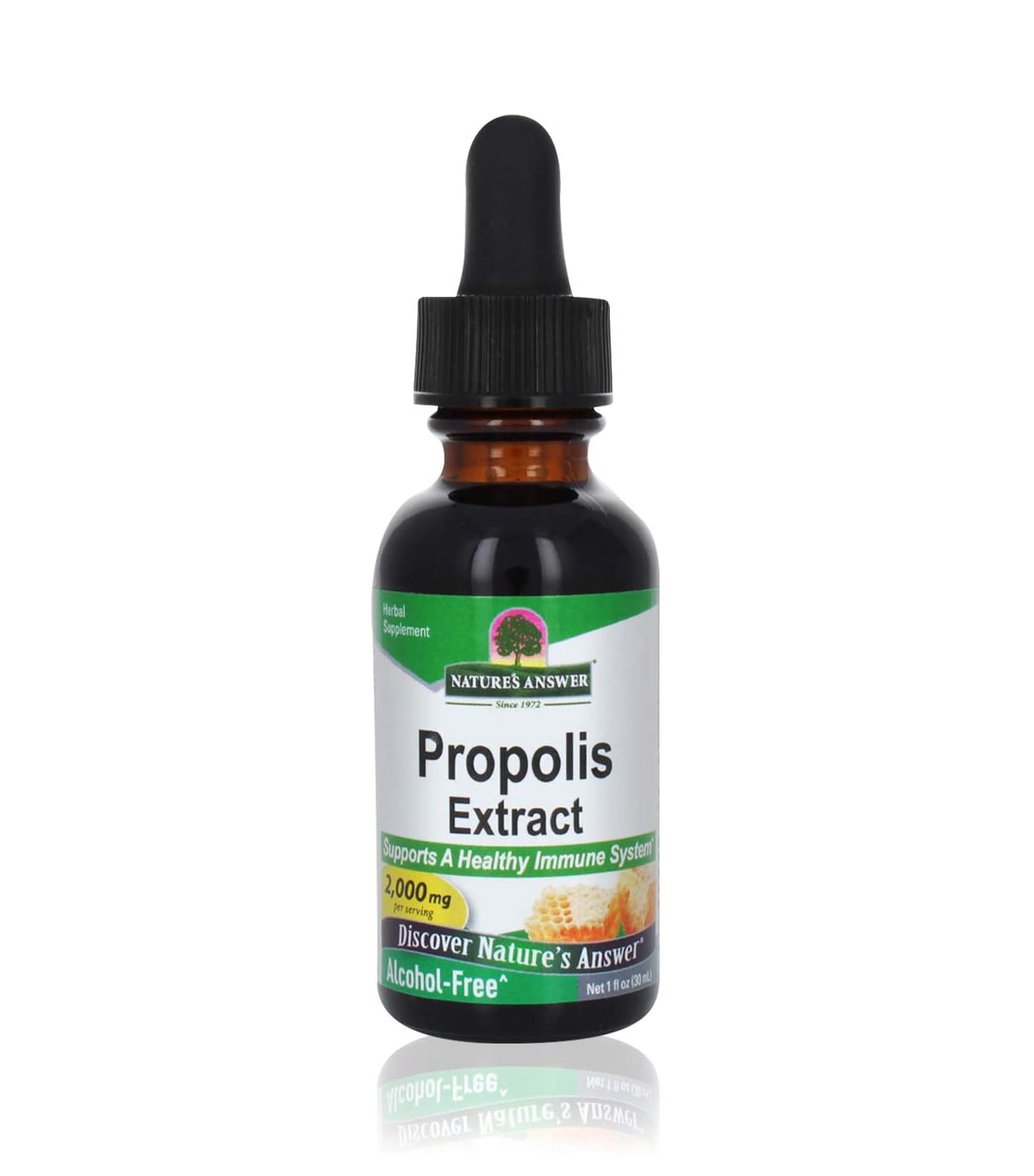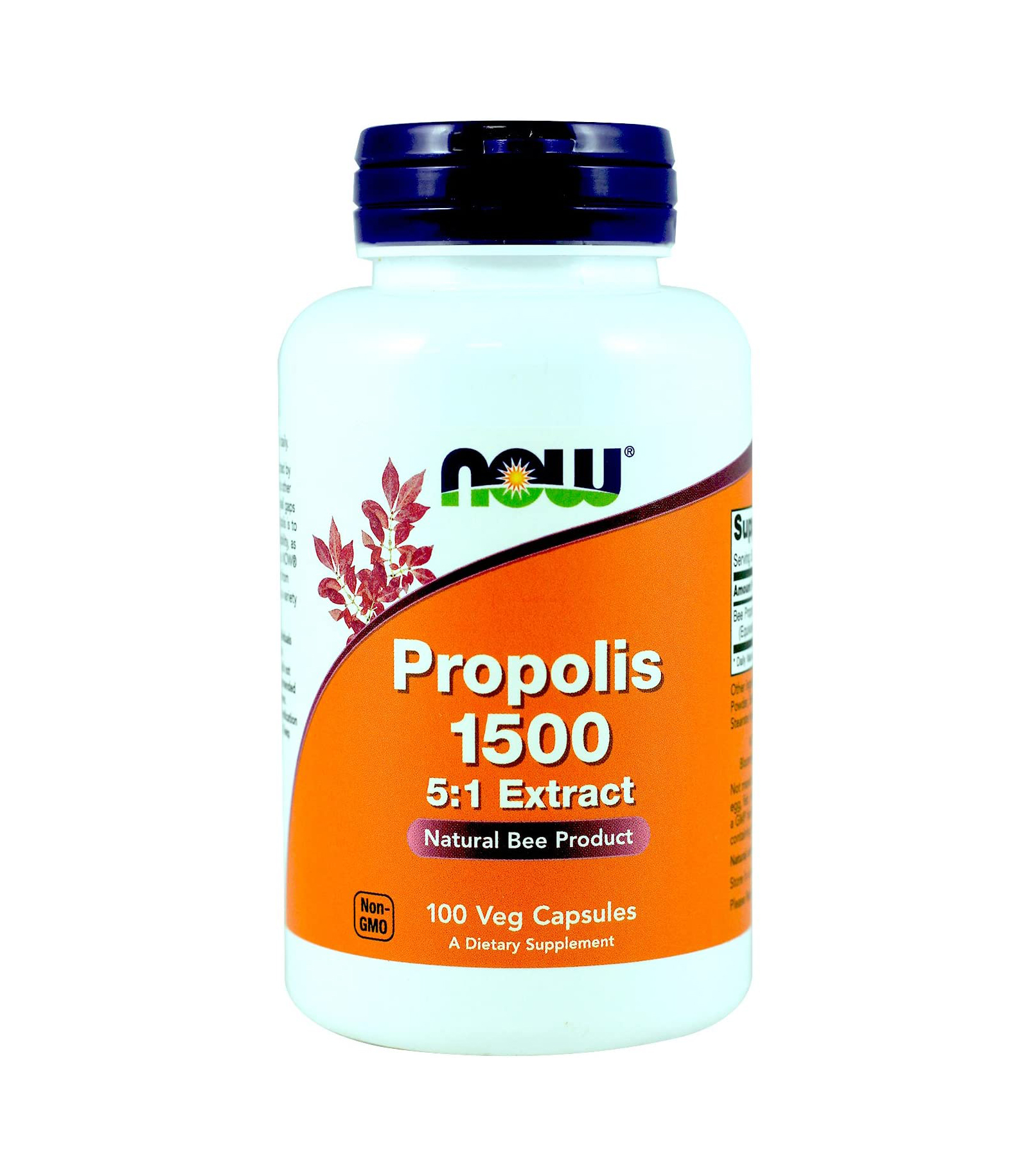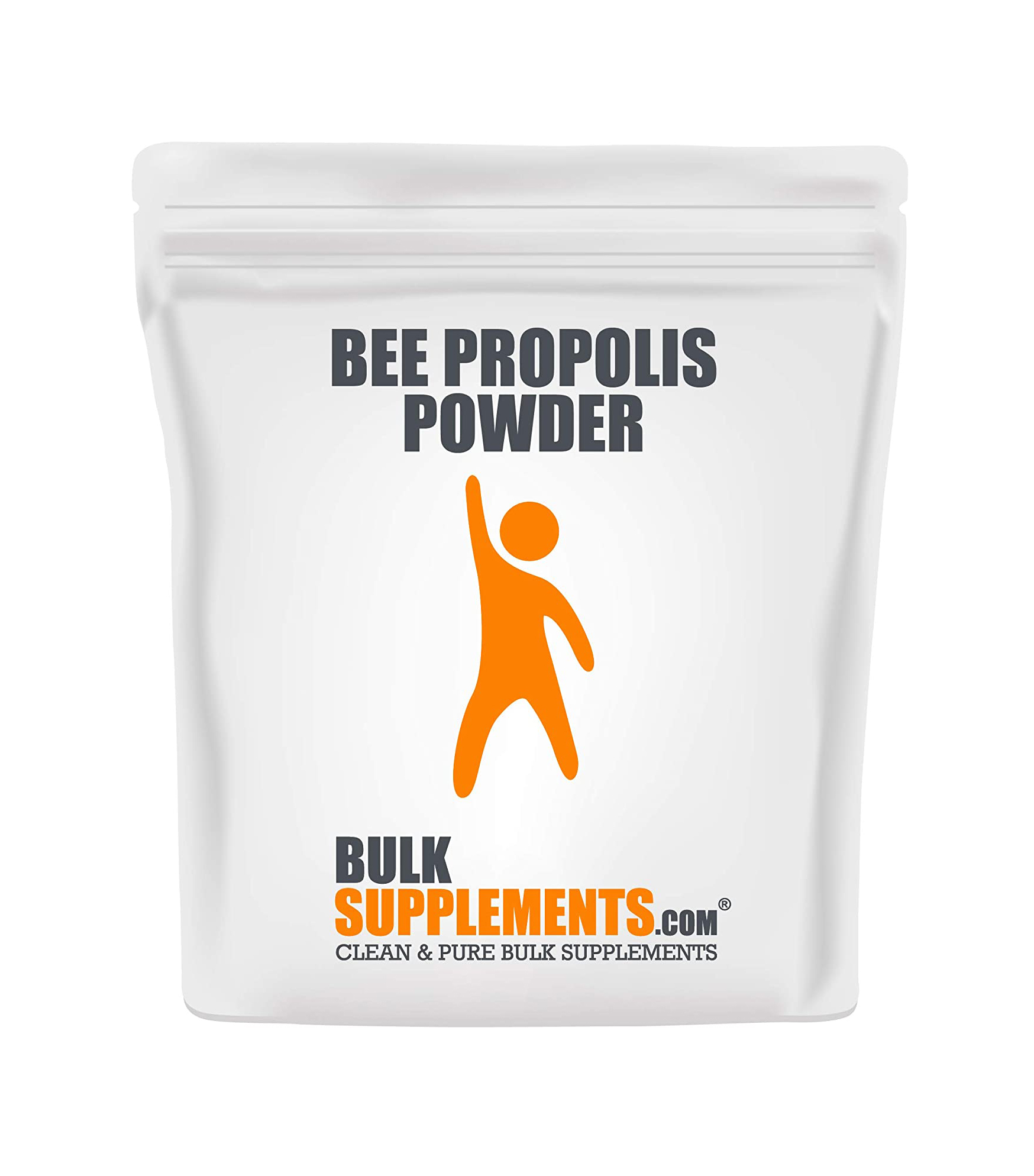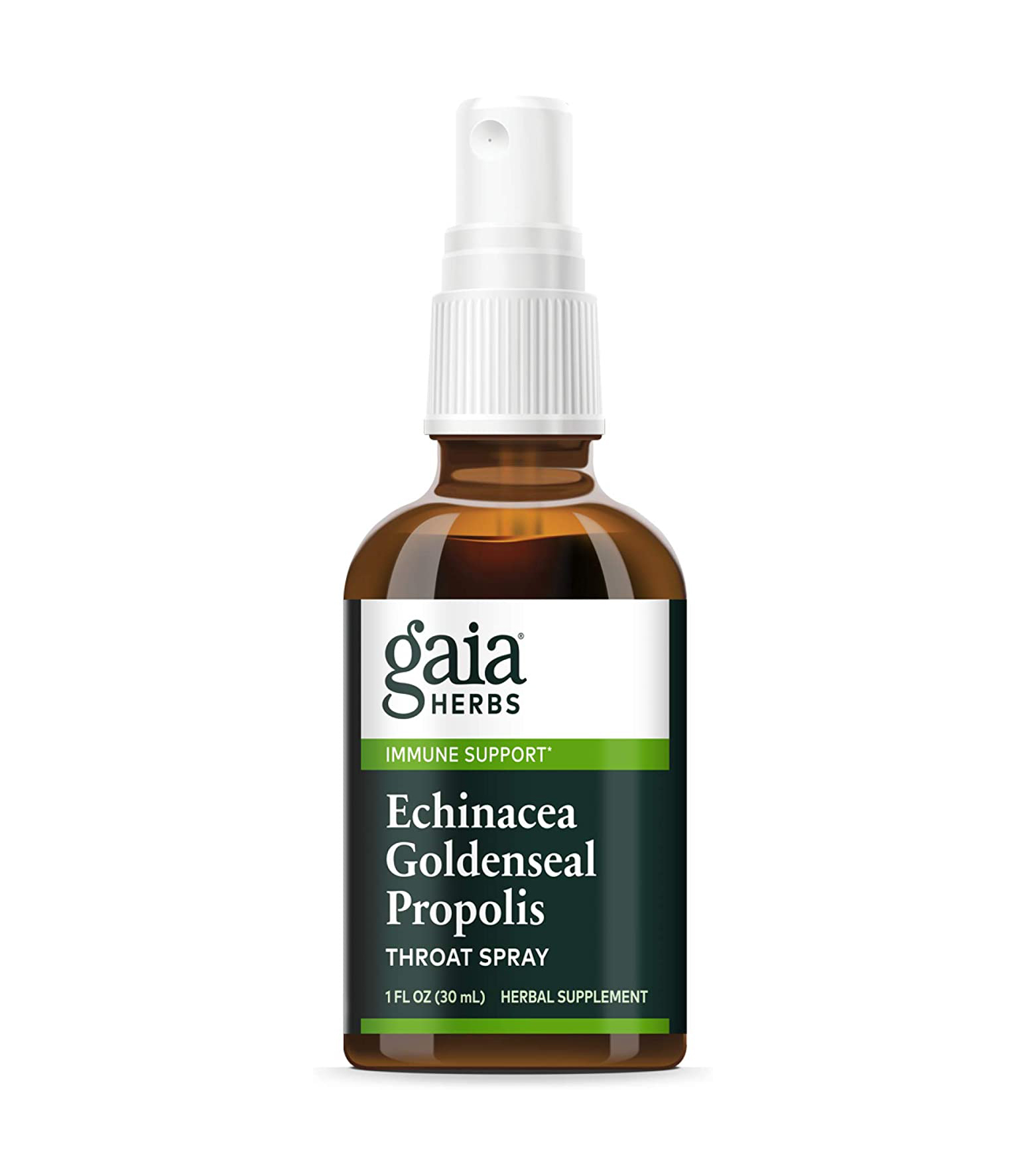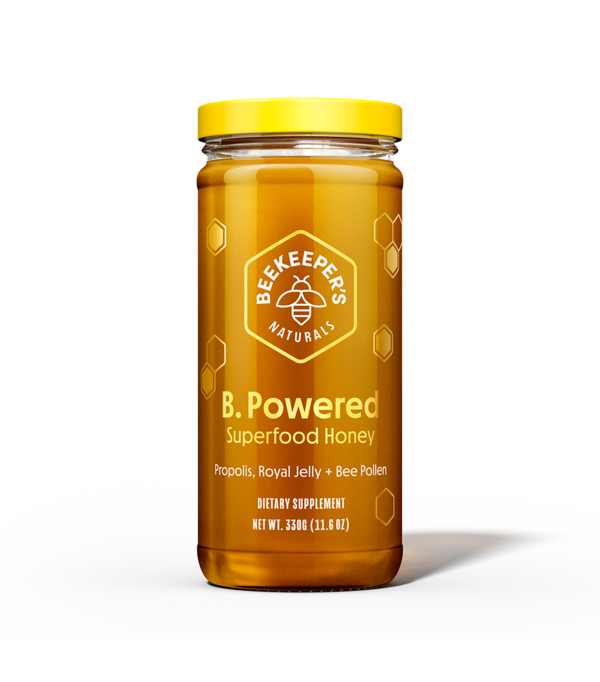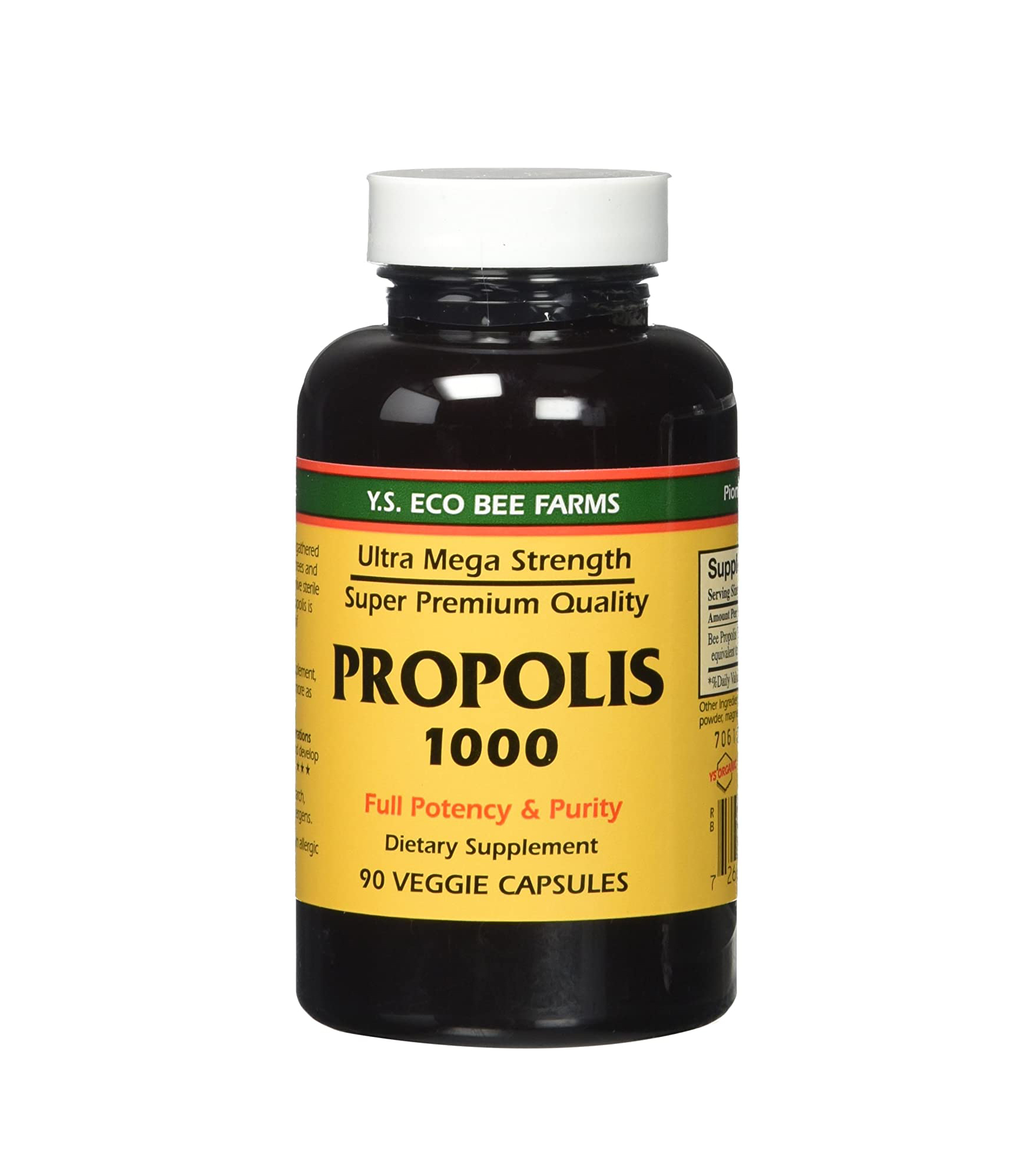This All-Natural Bee Product Might Be an Allergy Quick Fix

Ah, spring is upon us! And with spring florals come… allergies. Nearly 50 million Americans experience some form of allergies each year, according to the Asthma and Allergy Foundation of America. And that number includes seasonal allergies, also known as allergic rhinitis or hay fever.
If you’re one of these people, you fully understand the constant runny nose; watery, itchy eyes; sneezing; and not to mention all of the uncomfortableness that comes along with allergies. These common symptoms happen when the trees, grasses, and weeds start to pollinate, releasing tiny particles into the air to fertilize other plants. The body's immune system is just overreacting to the changes in the environment.
Ironically enough, though, bees—who help bring us the Instagram-pretty florals—actually bring us a super ingredient that may help combat these seasonal allergies. It's called propolis.
What Is Propolis?
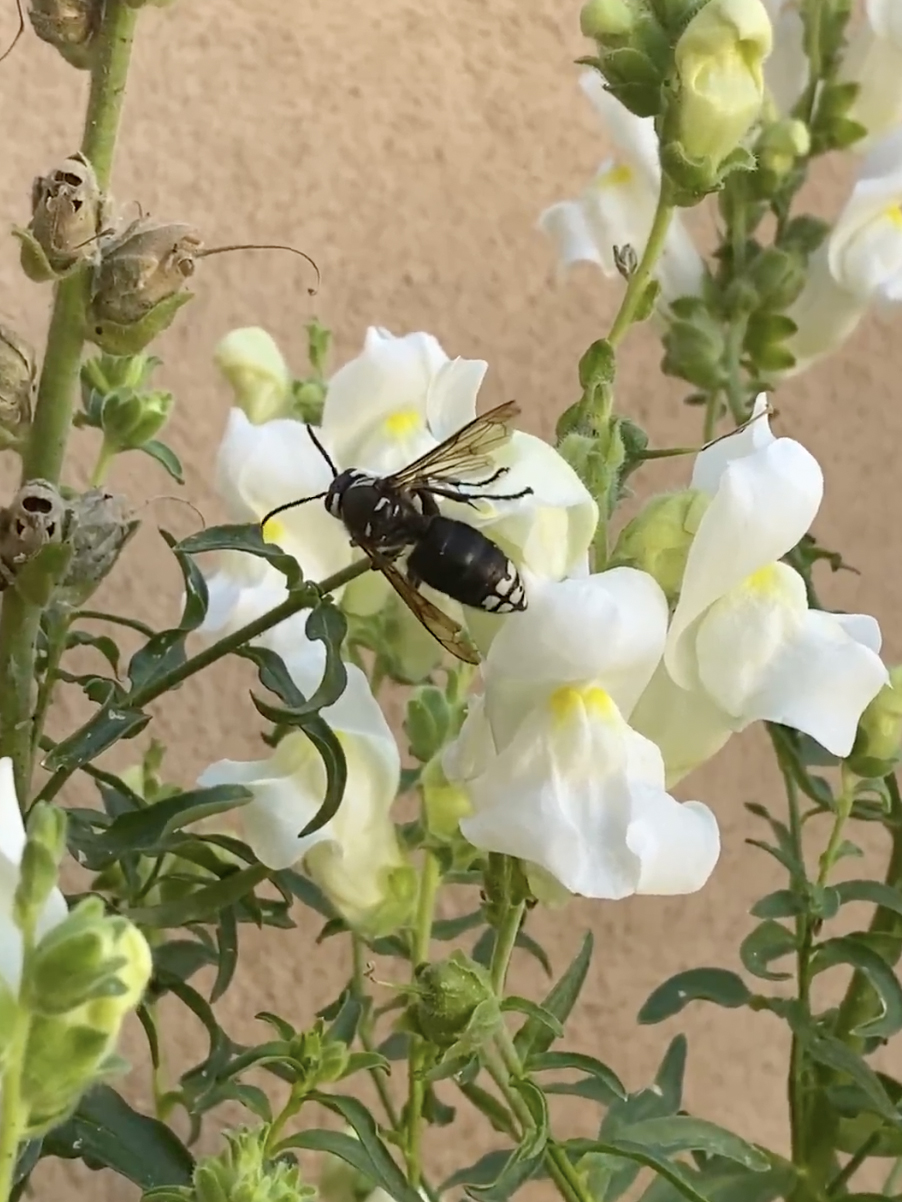
Propolis is a compound that bees create from the sap on needle-leaved trees. When it's combined with their discharge, beeswax, and pollen, another sticky compound, propolis is formed. Its biggest claim to fame is that it boosts the immune system due to its healing properties; it's antibacterial, anti-fungal, and anti-inflammatory.
Because of the numerous compounds propolis contains, including flavonoids, its high antioxidant levels prove to be beneficial in boosting immunity. It also has various health benefits related to gastrointestinal disorders and gynecological, oral, and dermatological problems.
Although more research needs to be done on its allergy-protection benefits, there is some promising research. Early studies have shown that propolis may be effective in the relief of allergy symptoms through the inhibition of histamine release.
How to Take Propolis for Allergies

Even though propolis's anti-allergy effects aren't 100% proven just yet, the all-natural product might be worth experimenting with to see if it helps. If you're thinking about taking propolis, consult your doctor, as there may be side effects if you are pregnant, breastfeeding, or allergic to bee by-products or if you have asthma. Propolis is in good company with other natural remedies that can provide that extra TLC and allergy relief. Bee pollen—which could be called propolis's sibling—is equally as powerful since it's an anti-inflammatory and antihistamine.
Propolis is the star in Beekeeper's Naturals products, such as the brand's Propolis Throat Spray. "You can take propolis anytime, but we recommend spritzing first thing in the morning so you can start your day on a naturally sweet note. Even though propolis contains zero grams of sugar, it tastes amazing and is a great way to kick off your day," says founder and CEO Carly Stein. She recommends taking four to eight sprays of the formula for daily immune support and up to 12 sprays a day, as needed, to soothe a scratchy throat.
Want to give it a try? Take a look at some more propolis products below.
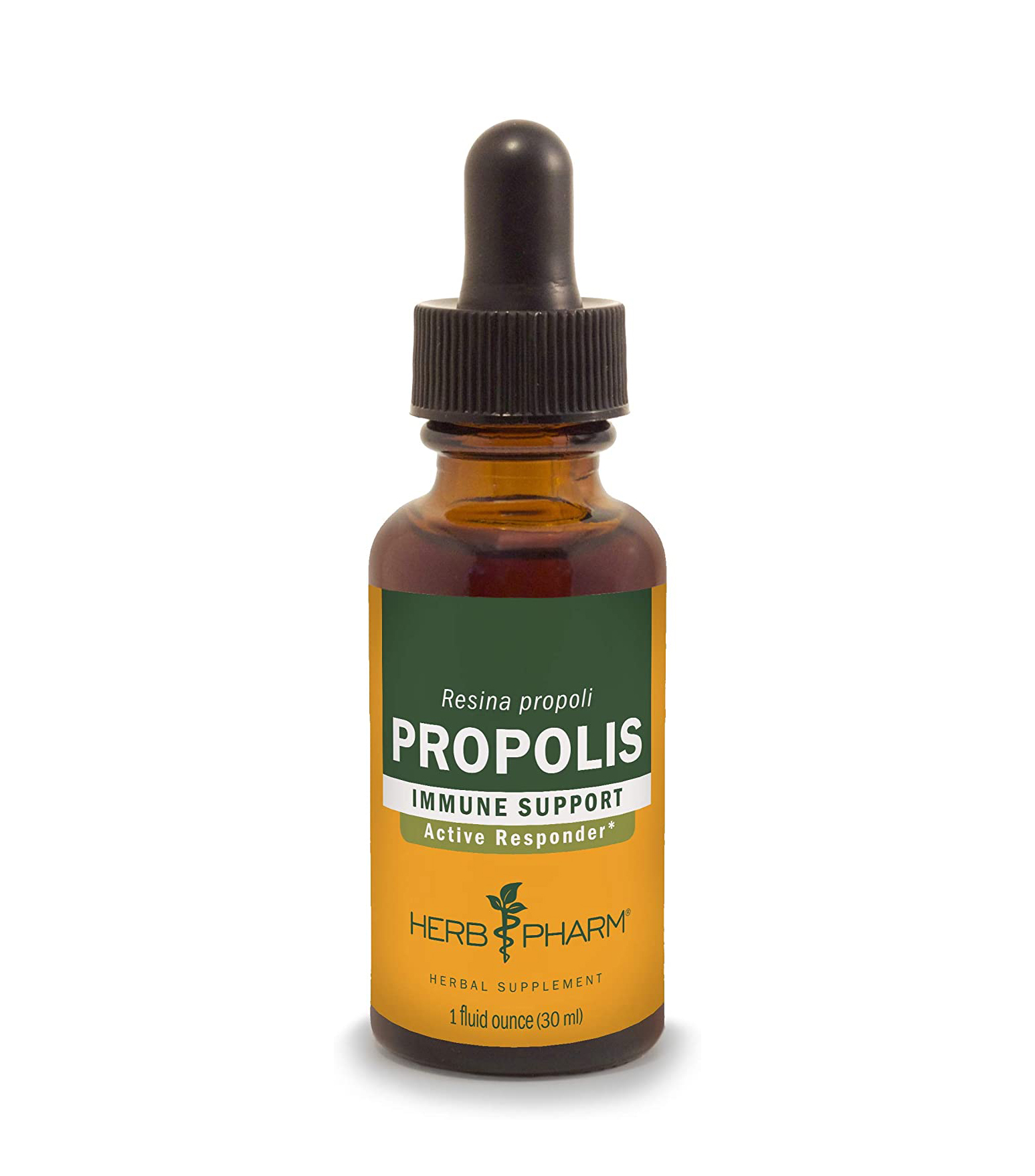
The propolis in this is extracted in small batches with organic cane alcohol for potency and to maintain the balance of phytochemicals.
Next up: This Secret All-Natural Ingredient Has So Many Healthy Uses
This article is provided for informational purposes only and is not intended to be used in the place of advice of your physician or other medical professionals. You should always consult with your doctor or healthcare provider first with any health-related questions.
